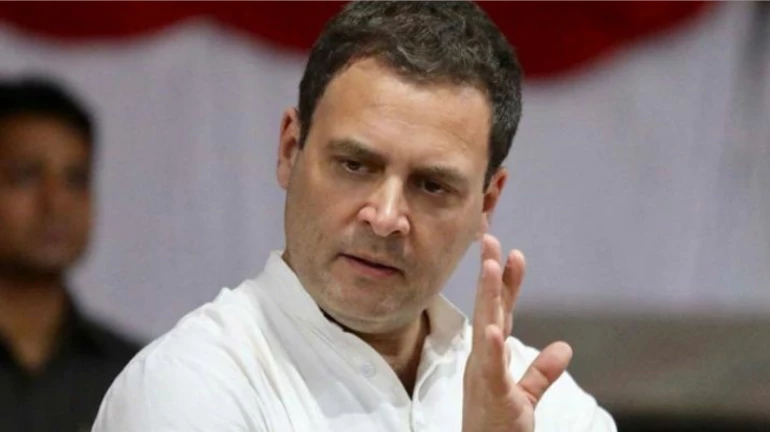
In recent developments within Maharashtra's Maha Vikas Aghadi (MVA) alliance, Rahul Gandhi has expressed frustration over the handling of seat-sharing negotiations, subtly indicating that Congress’s allies outperformed its own state team. The Congress party, which had initially set its sights on contesting a significant number of seats, is now reportedly feeling marginalized by the Uddhav Thackeray-led Shiv Sena (UBT) due to mounting challenges in securing key constituencies.
Setbacks in Seat Allocations
The ongoing discussions have yet to yield a satisfactory seat-sharing arrangement, despite a recent meeting between Congress negotiator Balasaheb Thorat and both Thackeray and NCP leader Sharad Pawar. Congress had aimed to secure at least 104 seats in the upcoming elections; however, negotiations have led to disappointment as the party struggles to hold onto its preferred constituencies. Thorat, after visiting Thackeray’s residence, urged the Shiv Sena (UBT) leader to reconsider some seat allocations. Yet, shortly after, Sena (UBT) declared candidates for the Versova, Vile Parle, and Ghatkopar West constituencies, limiting Congress’s options. Congress had shown strong interest in contesting from Versova, believing it had competitive candidates. Thackeray, however, offered Vile Parle instead, a compromise that Congress ultimately declined.
Initial Agreements and Challenges
At the outset, Congress had agreed to concede a larger share of Mumbai’s seats to Sena (UBT) in exchange for 14 of the 36 seats. However, reports indicate that Congress has been unable to secure even those. Vandre East, a seat previously won by Congress in 2019, has been conceded to Thackeray’s nephew Varun Sardesai after Congress MLA Zeeshan Siddique shifted allegiance to the NCP, a move that weakened Congress’s negotiating position. Congress also faces significant hurdles in Vidarbha, where it had hoped to lead the alliance. Instead, it found itself negotiating intensely as Sena (UBT) staked its claim to key constituencies in the region, resulting in a tug-of-war over seats like Kamthi, Dhamangaon Railway, and Nagpur South. Sena (UBT) went on to declare its candidate for Ramtek, prompting Congress to send a delegation to appeal to Thackeray, though the discussions proved unsuccessful. Disputes over seats in Armori, Gadchiroli, Bhandara, and Chimur remain unresolved, though Sena (UBT) MP Sanjay Raut has publicly denied any conflicts within the alliance.
Congress’ Troubles
The seat-sharing impasse isn’t limited to Congress and Shiv Sena (UBT). Conflicts have also arisen between Congress and NCP (SP), with Congress vying for seats that were ultimately claimed by NCP. Congress had shown interest in the Aheri seat, only for NCP (SP) to announce Bhagyashree Atram as its candidate. Similarly, NCP retained the Karanja seat, which Congress had hoped to contest. In response to the strained negotiations, state NCP (SP) president Jayant Patil acknowledged Congress’s efforts but explained that the seat allocation decisions were made with the current political scenario in mind, suggesting that the complex alliance dynamics continue to shape each party’s strategies as they approach the election.





